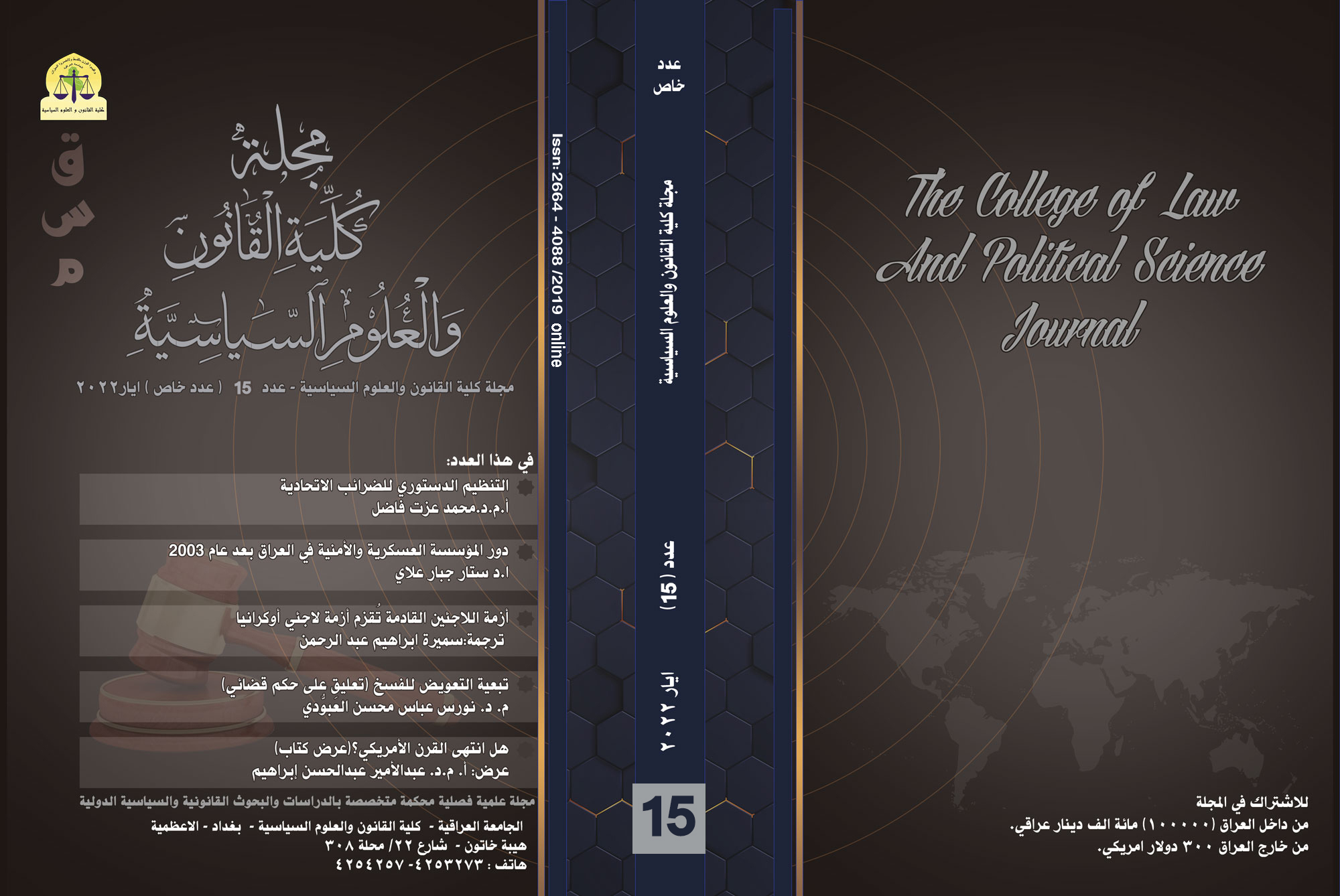Standard of assessing the moral element in intentional and unintentional crimes
DOI:
https://doi.org/10.61279/2kn4me38Keywords:
lawAbstract
The moral element of crime is a psychological force that creates and control,
and is represented in the free, aware, and chosen will that is directed in a way that
contradicts the speech of the legislator, or underestimates that speech. Violation
of the duties of caution and caution, then we are in the process of an unintentional
mistake.
7KHFULWHULRQIRUPHDVXULQJWKHIXOÀOOPHQWRIWKHPRUDOHOHPHQWLQWKHLQWHQWLRQDO
crime, i.e., the achievement of the criminal intent, is determined by the external
manifestations that would reveal and reveal it. She is convinced of the existence of
FULPLQDOLQWHQWEXWVKHVLPSOLÀHVKHUFRQWURODQGDVNVKHUZKDWVKHLVFRQYLQFHGRI
the existence of criminal intent or not, that is, what is the evidence for the statement
that criminal intent has been achieved and what kind of manifestations indicate
it, and from here it must be distinguished between what is subject to control and
what is not subject and is considered within the discretionary powers of the court.
As for the criterion for estimating the moral element in a non-intentional crime, i.e.
Downloads
Published
Issue
Section
License
Copyright (c) 2023 The college of law and political science journal

This work is licensed under a Creative Commons Attribution-NonCommercial-NoDerivatives 4.0 International License.

